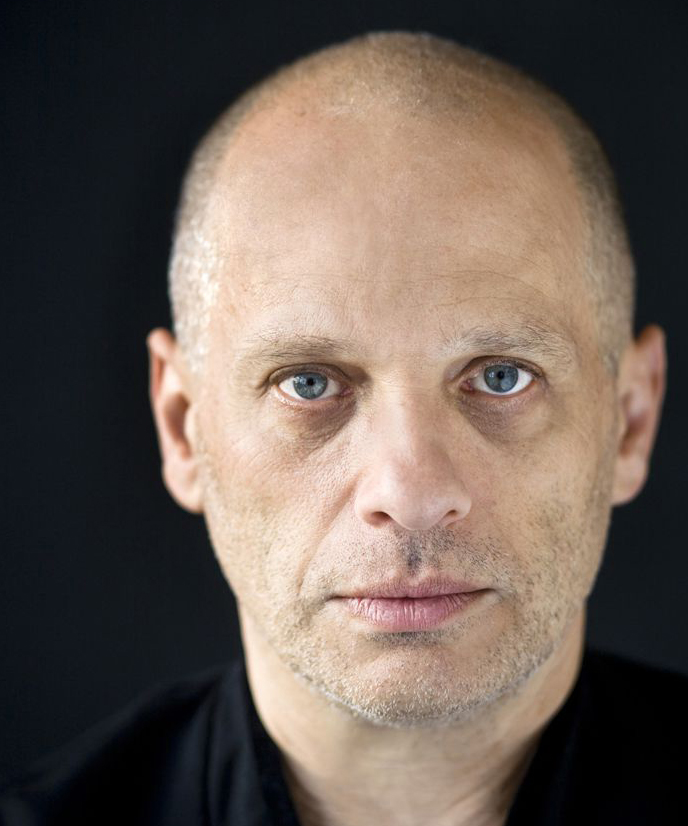
Courtesy of Yale University
A group of singers wearing yellow jumpsuits stomp and sing on a platform above an orchestra. They pound their fists as they stand behind a chain-link barbed-wire fence; they are prisoners. Their silver handcuffs glisten under the stage lights.
This is the final scene of School of Music professor David Lang’s opera “prisoner of the state.” The opera, which premiered in 2019, retells the story of Ludwig van Beethoven’s only full-length opera, “Fidelio.” Both works comment on political prisoners.
Lang, one of the United States’ most-performed composers, has been nominated for an Academy Award and Golden Globe. He also co-founded a legendary New York-based chamber music collective called Bang on a Can.
Lang said that “Fidelio” was an early attempt to instill music with explicit social and political commentary. He first saw “Fidelio” in the 1970s, when he was in his early twenties and has wanted to rewrite it ever since.
“I was shocked when I saw this piece for the first time,’” Lang said. “It was always presented as a great piece about freedom and having an individual person stand up to the injustices of society, but I came out of the opera wanting it to go further with that idea than it did. We’re supposed to accept the canon unquestioningly, and I don’t want to do that. I’ve never wanted to do that.”
Beethoven wrote his opera in the early 19th century. Even the title suggests that “standing up to the injustices of society” may not have been the opera’s focus. The libretto was originally titled “Leonore, oder, der Triump der ehelichen LIebe” — “Leonore, or the Triumph of Marital Love.”
In Beethoven’s version, Leonore dresses as a man named Fidelio and tries to rescue her husband Florestan from prison. The opera ends with a freed Florestan and a song with the lyrics, “Happy is the man who has the loving wife.”
“I pity all the prisoners who aren’t married,” Lang said. “At that triumphant moment at the end, I wanted the chorus to come out and sing something like ‘long live freedom’ or ‘down with tyranny.’ It seemed like a letdown.”
According to Lang, through adding several subplots common to the comic opera, Beethoven may have intended to use a publicly recognizable genre to “feed into this heavy, political story.”
“What I realized is that if you’re interested in the corruptness of our prison system, ‘Fidelio’ gets really off-topic,” Lang said.
Several decades later, Lang convinced several world-renowned orchestras to co-commission his work: the New York Philharmonic, Rotterdam’s de Doelen Concert Hall, London’s Barbican Centre, Barcelona’s l’Auditori, Bochum Symphony Orchestra and Bruges’ Concertgebouw.
Lang wanted the opera to shift its focus away from the wife’s love for the husband. He stripped the plot of “Fidelio” down to its central question: how does an individual challenge society? Lang kept most of the original libretto, but added texts from Beethoven’s contemporaries Jean-Jacques Rousseau and Niccolò Machiavelli. Lang kept none of Beethoven’s music and wrote his own instead.
“I was struck by the range of synthesis he managed of his own exquisitely spare style,” said composer Miles Walter ’19 MUS ’20.
Walter, who attended one of the New York premieres of the opera, called it “heart-wrenching” and spoke of a unique kinship between Beethoven and Lang’s music.
Lang also wanted to give each of the prisoners a voice. He noted how Beethoven “forgot about” the prisoners after introducing them powerfully in “Fidelio’s” most famous chorus, the “Prisoner’s Chorus.”
“I made sure they weren’t forgotten, so I let them sing about their lives and why they were in prison,” Lang said. “I put them in every scene. They eavesdrop on everyone and comment on everyone.”
While creating art that provides political commentary can be powerful, it is often also divisive. Lang’s approach to writing politically-informed music calls listeners to “wake up” and “pay attention,” instead of asking audiences to feel a certain way.
Violist Florrie Marshall MUS ’18 said that, while Lang’s music is highly political, it does “not point fingers or divide people, but rather creates a space that allows people to reflect.”
Walter agreed, saying that Lang’s music “allows the listener to continue their own thoughts” instead of convincing them to feel one emotion.
Some of the arias in the opera include “uhh. so dark,” “gold” and “better to be feared.” Lang never uses capitalization in his titles. When he was a young composer, he focused his time studying the well-known compositional “heroes” of the past. By not capitalizing the titles of his pieces, he wanted to make clear that he was not trying to “do something heroic or make a masterpiece, but rather do something small humble and honest.”
Almost 40 years later, with “prisoner of the state,” he has continued this tradition.
“Before we are composers or artists or plumbers or students or professors, we are citizens,” Lang said. “It’s wrong to expect that your entire political expression will show up in a work of art. It needs to show up in your life first.”
Lang has been on faculty at the Yale School of Music since 2008.
Phoebe Liu | phoebe.liu@yale.edu







